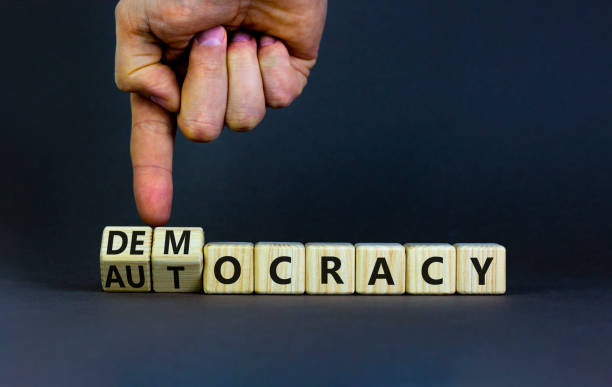
In the realm of governance, the battle between genuine democratic freedom and oligarchic-led national “independence” continues to shape the trajectory of nations worldwide. While independence is often championed as a milestone achievement, it is crucial to scrutinize the underlying mechanisms and structures that determine the true essence of governance. This blog aims to shed light on the fundamental differences between genuine democratic freedom and the façade of oligarchic-led national “independence.”
The Illusion of Oligarchic-Led National “Independence”
Oligarchic-led national “independence” often presents itself as a celebration of autonomy, where a nation purportedly severs ties with external forces and assumes complete self-governance. However, this narrative can be deceiving, as it fails to address the concentration of power in the hands of a few influential individuals or groups within the nation. Such concentration can lead to a distorted version of independence, one that primarily benefits the oligarchy while marginalizing the majority of citizens.
Characteristics of Oligarchic-Led National “Independence”
- Consolidation of Power. Oligarchic systems tend to concentrate power in the hands of a select few, diminishing the influence of ordinary citizens in decision-making processes. Economic and political elites often manipulate the system to serve their interests, creating a democratic deficit.
- Lack of Accountability. Oligarchies tend to operate without adequate checks and balances, leading to a lack of transparency and accountability. This absence of oversight allows for corruption and nepotism, hindering socio-economic progress and perpetuating inequality.
- Suppression of Dissent. Oligarchies are prone to suppressing dissent and stifling voices that challenge their authority. Freedom of expression, press freedom, and other civil liberties often suffer, hindering the development of an inclusive and participatory society.
The Essence of Genuine Democratic Freedom
Genuine democratic freedom, on the other hand, is rooted in the principles of inclusivity, accountability, and the protection of individual rights. It seeks to foster an environment where citizens can actively participate in decision-making processes and have equal opportunities to shape the direction of their nation.
Characteristics of Genuine Democratic Freedom:
- Popular Participation. Democratic systems prioritize citizen engagement and participation. They encourage the active involvement of individuals from diverse backgrounds, ensuring that policies and decisions reflect the will of the people.
- Rule of Law and Accountability. Democratic societies uphold the rule of law, ensuring that institutions function independently and impartially. Public officials are held accountable for their actions, reducing corruption and promoting the equitable distribution of resources.
- Protection of Individual Rights. Democratic systems recognize and safeguard the rights and freedoms of individuals. This includes freedom of expression, assembly, and association, which allow citizens to voice their opinions, advocate for change, and contribute to the national discourse.
The Way Forward
To build genuine democratic freedom, it is essential to challenge and transform oligarchic-led national “independence.” This can be achieved through various means:
- Strengthening Institutions. Robust institutions, including an independent judiciary, free media, and transparent electoral processes, are vital for fostering genuine democratic freedom. Efforts should be made to ensure that these institutions are protected, strengthened, and insulated from undue influence.
- Encouraging Civic Participation. Promoting civic education and engagement is crucial for empowering citizens and cultivating a culture of active participation. Governments should provide platforms for dialogue and collaboration, allowing citizens to voice their concerns and contribute to policy formulation.
- Promoting Inclusive Economic Policies. Addressing socio-economic disparities is essential for ensuring democratic freedom. Governments should adopt inclusive economic policies that prioritize equitable distribution of resources, job creation, and social welfare programs to uplift marginalized communities.
Genuine democratic freedom represents a paradigm that transcends the superficial notion of oligarchic-led national “independence.” It is an inclusive, accountable, and participatory system that prioritizes the rights and well-being of all citizens. By dismantling oligarchic structures and fostering democratic principles, nations can strive towards a more equitable and just society, where the true essence of governance flourishes.

